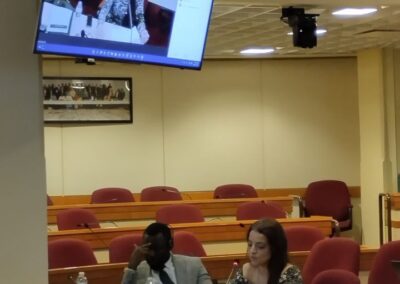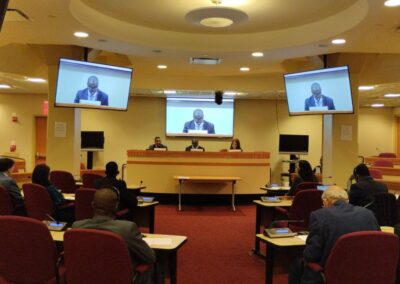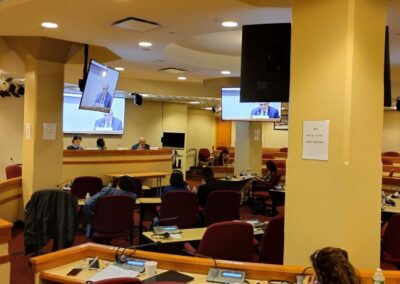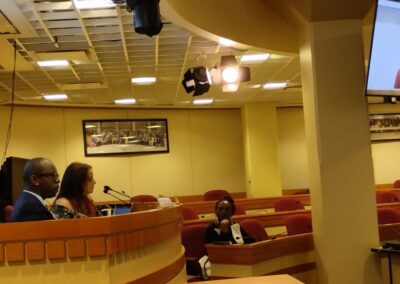Wednesday, 26 October 2022, 10:00 – 1:00 PM EDT, AU Permanent Observer Mission to the United Nations, 3 Dag Hammarskjöld Plaza, New York
The Center for International Law and Policy in Africa (CILPA), in collaboration with the Office of Legal Counsel of the African Union Commission, hosted an interactive dialogue exploring the Role of Regional and International Codification Bodies in the Development of International Law. The interactive dialogue was hosted at the AU Permanent Observer Mission to the United Nations, New York, and on Zoom, on 26 October 2022, on the margins of the UN General Assembly’s Sixth Committee.
The codification of international law has had a long and storied history. It initially began as a private exercise, first by individual jurists and later by societies and research groups established by academics such as the International Law Association, the Institut de Droit International and Harvard Research in International Law. It eventually gave way to the creation of independent expert bodies by States, for example at the regional level, the Inter-American Juridical Committee (IAJC) in 1906, within the framework of the Pan American Union. The same occurred at the international level under the League of Nations in 1924, which established a standing Committee of Experts for the Progressive Codification of International Law. The latter subsequently became precedent for the establishment, in 1947, of the United Nations International Law Commission (ILC) which then assumed a seminal role in the progressive development and codification of modern international law. Today, it is hard to imagine international law, which remains a key factor in the peaceful conduct of international relations, without the contributions of independent legal codification bodies.
Unsurprisingly, with the apparent institutionalization of codification in formal State-created mechanisms to which States nominate and elect jurists who generally serve in independent capacities but are ultimately accountable to them, the work of private expert bodies is increasingly largely undertaken by the codification bodies that also tend to enjoy closer formal and informal working relationships with States. Indeed, over time, we have experienced the growth of such bodies at the regional level such as the establishment in 1991 of the Committee of Legal Advisers on Public International Law (the CAHDI) in Europe and the creation in 2009 of the African Union Commission on International Law (AUCIL) in the Africa region. The European and African bodies thereby joined the established IAJC serving the America’s region within the Organization of American States.
While both regional and international codification bodies maybe said to be on the same boat heading towards the same destination of assisting States in developing binding rules of international law to guide the peaceful conduct of international relations, it remains unclear the extent to which regional bodies such as AUCIL and international codification bodies such as the ILC interface with each other on a technical and substantive level. Of course, as part of their respective traditions, these codification bodies may receive delegates from the other institutions to share information and exchange views on ongoing topics and projects being worked on. The ILC, for instance, has a standing agenda item on cooperation with other bodies. Thus, it annually receives representatives of regional bodies including the AUCIL, CAHDI and the IAJC at its annual sessions in Geneva. In turn, the regional codification bodies also reciprocate and invite representatives of the ILC to their sessions. This tradition of exchanges of views is by now well established. The question arises whether, beyond annual exchanges of information on topics, there might be scope for the further deepening of collaborations between regional and international codification bodies with the view to enhancing their collective contributions to the development of international and regional law.
The panel discussion aimed to open an initial dialogue on this critical topic. Members drawn from the AUCIL, CAHDI, and the ILC, along with representatives of States and academia, engaged in a preliminary dialogue with the view to determining what further collaboration might hold for the further codification and progressive development of regional and international law in Africa and internationally.




